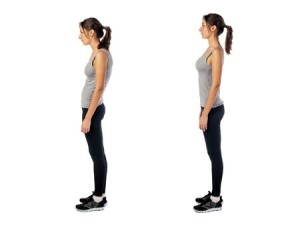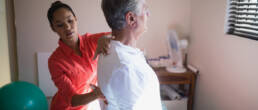Having good posture not only helps you psychologically but can also benefit you physically. If you have good posture, other people see you as someone confident. They would put a certain level of trust and respect since you know how to present yourself.
Physically, good posture can help prevent injuries and the occurrence of pain-causing health problems brought by having bad posture. Poor posture strains the ligaments and muscles while you sit, walk, stand or lie down and over time it can cause body pain and injuries.
Signs of Poor Posture
People with poor posture are easy to spot. The most common signs are having excessively arched backs, rounded shoulders and heads pushed forward in an awkward position. If you are one of these people, now is the right time to improve your posture to prevent future complications. The process of correcting poor posture may be difficult but not impossible with the help of a physical therapist.
Improving Posture
As you get older, it is necessary that your muscles are exercised to keep their strength and make sure that your joints are fluid and active. Concentrating on firming up your abdomen and lower back is a good way to strengthen many of the vital muscles of the body.
Apart from these exercises, stretching also is vital in having good posture. Although stretching may seem easy, doing proper neck stretches is helpful in making sure your neck will not become rigid, which is among the common issues for many in trying to attain proper posture.
Physical Therapy Can Improve Your Posture
Many of us think physical therapy is only meant to improve muscle movements and restore muscle function. You should know that improving posture is one of the many benefits of physical therapy. It can help correct poorly misaligned vertebrae and educate you about properly positioning the body when doing regular tasks.
If you are in need of Denver posture correction, contact Denver Physical Medicine & Rehab. To schedule your free initial consultation with a top Denver physical therapist and learn more about the benefits of physical therapy, please call 303-757-7280.
Ready for an expert opinion? Get in touch today!
Discover how physical therapy can help manage scoliosis in mild to moderate cases, along with other ways it offers healthcare solutions. Learn more from Dr. Mansi Dua, DPT, C2 Schroth Certified.





